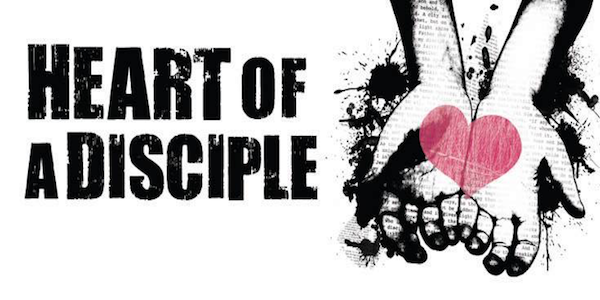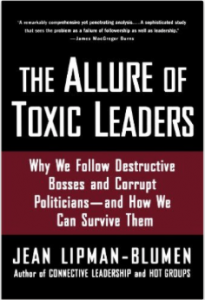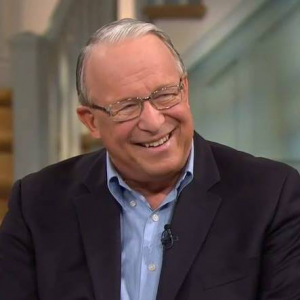Home » 2016
Yearly Archives: 2016
Leading From Behind: The Shepherd’s Way
There’s a marvelous article in the Harvard Business Review on “leading from behind” and “leadership as collective genius.” Professor Linda Hill is chair of the Harvard Business School’s High Potential Leadership program and an active researcher in the field of leadership. Leadership in the future, she says, will require “leading from behind” to create environments where people working in teams can contribute their skills for collaborative problem solving and innovation through the joint creativity of diverse teams. (See the article here.)
She compares this process to the work of a shepherd. Shepherds lead from the rear of the flock, helping them navigate and creating an environment where the more nimble and agile are able to run ahead so that the others can follow. The task of the leader is to help individuals flourish in their roles, setting boundaries for the flock, and helping to resolve tensions. Leading from behind is particularly important when the goal is to encourage innovation, discovery and implementation of new ideas and processes. Innovation flourishes where leaders both unleash and harness the creativity of the team, Hill says. “You have to create an environment in which” all the participants are “engaged and in which the collective talent of team members is tapped by having everyone take the lead at some point.”
Nelson Mandela and “Leading from Behind”
In more recent time the concept of “leading from behind” has been associated with President Barrack Obama and said to be a foolish idea. This confuses politics with leadership, and seriously fails to understand the concept. “Leading from Behind” is not about hanging back and failing to lead. Nelson Mandela, a leader admired world-wide for his strength of character explains the true meaning of “leading from behind.”
“It is better to lead from behind and to put others in front, especially when you celebrate victory when nice things occur. You take the front line when there is danger. Then people will appreciate your leadership.” (Mandela, Long Walk to Freedom, 1995, 22).
“Leading from behind” is about empowering others to lead in addition to yourself. It’s about being in front when there is danger but allowing others to join in when there is success. Leading from behind is the pattern of strong, not weak, leadership.
(more…)The Priority of Love
Is there anything a grave marker can teach us about love?
The answer is “a lot.” Take a look at the stone below that stands over the grave of Cameron Townsend, the founder of Wycliffe Bible Translators.
Cam’s final message to his followers includes two exhortations. First, “By love serve one another.” Second, “Finish the task.” Notice that serving one another by love comes first and the task second. The order is deliberate, instructive, and biblically accurate. The great task of Bible translation is carried out by the community of believers who love one another.
There is always a temptation to put practical results first, to make “getting the job done” the first priority and then to fit in love for one another when there is time or opportunity. The problem with this approach is that loving one another gets squeezed out in the rush to catch the next flight, to get to the next appointment, to take the next phone call, to answer the next email, and–well–very simply to do “the next thing.”
Commitment to fulfilling the Great Commission can turn into this kind of high-pressured race. Let potential followers who want to gather together for fellowship go elsewhere. We “signed up” to do evangelism and the Great Commission not to love one another. This can even turn into a suspicion of taking time to love one another as if loving one another could become the enemy of the Great Commission.
What Does It Mean to Be a Disciple?

What does it mean to truly follow Jesus? To be one of His disciples?
Jesus Himself gave us the answer to this question in Luke 14:33.
“. . . those of you who do not give up everything you have cannot be my disciples.”
He affirmed this same truth in another way in Mark 8:34-35.
“Whoever wants to be my disciple must deny themselves and take up their cross and follow me.
for whoever wants to save their live will lose it, but whoever loses their life for me and for the gospel will save it.”
Extraordinary Organizations: What Does It Take?

It’s the perennial leadership question. There is something different about some organizations, something that helps them outperform others and even exceed their own goals.
What does it take to be an extraordinarily
effective organization?
In his book, Building the Bridge As You Walk On it, Robert Quinn says that these “extraordinarily positive” organizations can be called highly “productive communities.” In these communities, people find that they can contribute and excel.
What makes highly productive communities different?
During a visit to one extraordinary organization, a group of managers described the impact of several extraordinary people. These were people who had influenced the organization very significantly. They had inspired others to achieve at higher-than-dreamed levels.
“So what do they do?” the researcher asked. Quinn says that there was a long silence. Finally one director said, “That’s the wrong question.”
I like that. To ask first about what they do is to ask the wrong question. That question points us to look for behaviors, techniques, practices, and habits. It’s the dream of everyone concerned about leadership. “Tell me what I need to do!” We want the three-point short-list, the seven-part formula, the 87 irrefutable keys to successful leadership, the “formula” that we can apply. If we could only find out what these extraordinary people do we could then capture it, teach it, and through imitation gain that same performance advantage for ourselves.
It’s Who They Are
(more…)What Is Your “Transformational Question”?

Questions are powerful. Getting to the right answer begins with asking the right question. A particularly probing question can press us toward new perspectives, new insights, new methods. A very few questions–just the right questions–can stimulate wide-scale transformation
The Power of a Transformational Question
Robert Quinn relates the experience of consultant Kurt Wright who was working for a huge software project that involved a $100 million dollar contract. 400 hundred engineers were 38 months into a 60-month schedule. The project was slipping behind every month and was now 18 months behind. Worse still, if the project was not on schedule within 10 months, the contract required the company to pay a $30 million penalty. Disaster was 10 months away.
What would you do? Crack the whip and urge people on? Fire the managers responsible for the slippage and hire new ones? Give up?
After many conversations with people involved in the project Wright concluded that he had to change the fundamental “scripts” that were controlling the workers’ assumptions and behaviors. To galvanize everyone’s efforts and establish a new positive vision he concluded that it was necessary to change the underlying question. In short, those 400 engineers and managers needed a new and transformational question.
What would it take to finish one week early?
The question had to be creative, frame-breaking, and visionary. It had to capture imagination and motivate wholehearted commitment. Through a series of two-day retreats, Wright finally hit on the critical transformational question: “What would it take to finish this project one week early?”
On the surface, Quinn says, the question was ridiculous. Everyone was already trying to finish the project “on time” in a 5 year contract “one week early” is hardly different from on time. Besides that, going from 18 months behind to one week early seemed an impossible goal. And yet the question was powerful. It rewrote the underlying script by injecting a new frame for conversation. A few people began to take the foolish question seriously and then more joined in.
(more…)Courage to Oppose Toxic Leaders
He shared in their humanity so that he might free those who were held in slavery by their fear of death. Hebrews 2:14-15
“How does the resurrection of Jesus transform your understanding and practice of leadership?” If someone asked you this question could you answer it clearly?
If this most pivotal event at the core of our faith doesn’t have an impact on how we lead then surely something is wrong. Isn’t it?
Toxic Leaders and the Fear of Death
As I thought about this point, I recalled a fascinating analysis of toxic leadership provided by Jean Lipman-Blumen in her book on toxic leadership. As with other poisonous things, these leaders come in varying degrees of toxicity.

Petty Tyrants. Some are mildly poisonous—one might say “not altogether bad”—and are found in small domains, offices, churches and ministries. They set unreasonable goals, promote excessive internal competiton, and create cultures of blame.
(more…)Building Value Into Your Life

You long for a life of significance!
You don’t crave fame. You’r not trying to become powerful. Pursue these things and in the end you may discover you’ve squandered your years. So what does it take for life to be significant?
The teaching of Jeremiah gives us important clues.
“I knew you before I formed you in your mother’s womb.
Before you were born I set you apart and appointed
you as my prophet to the nations.”
— Jeremiah 1:5
We learn that:
- God prepared him from birth for a life of godly significance. He has done the same for you.
- God appointed him to do significant work. He has good works for you to do, too.
Significance begins with the imprint of a great maker!
From the moment you were born you’ve been a treasure to Him. Yes, it’s true! He formed you personally in your mother’s womb. You are a unique and special creation of the Maker of Heaven and Earth Himself. I once stood in front of a glass case containing a collection of the fabulous, jewel-encrusted “Easter eggs” created by Peter Carl Fabergé for the Czars of Russia as gifts for their wives and mothers. A single Fabergé egg was recently estimated to be worth more than $30 million dollars. A violin made by the famous Antonio Stradivari is vastly more valuable than even the best modern instrument.
(more…)